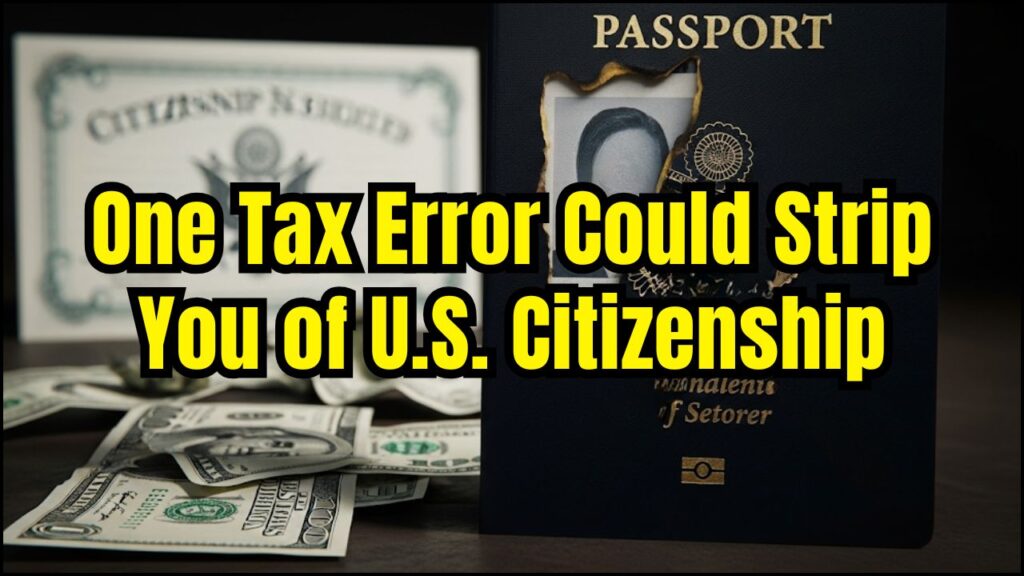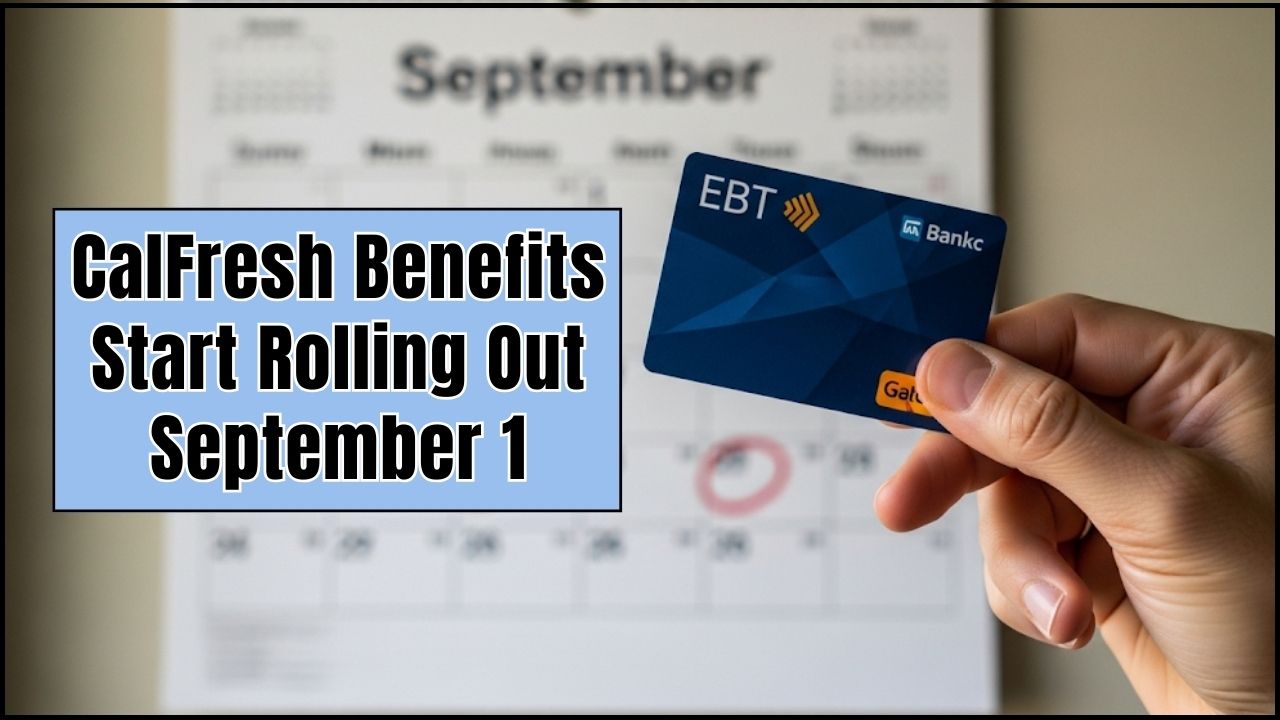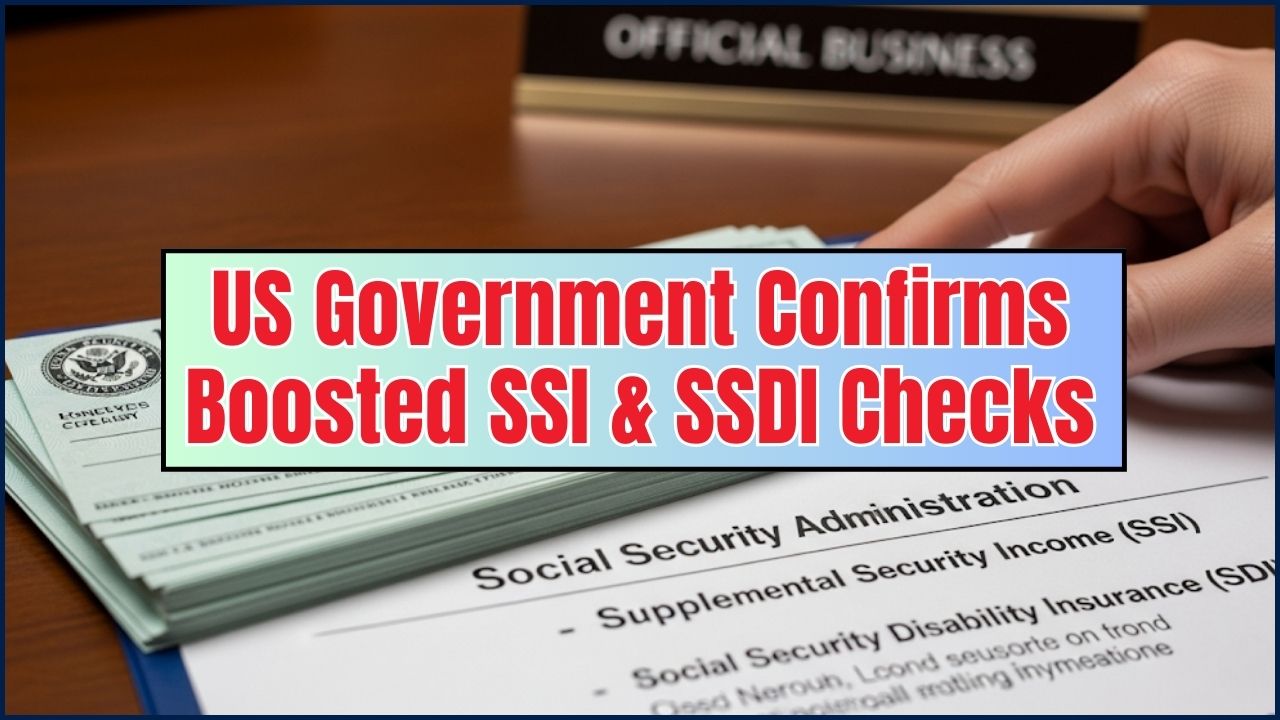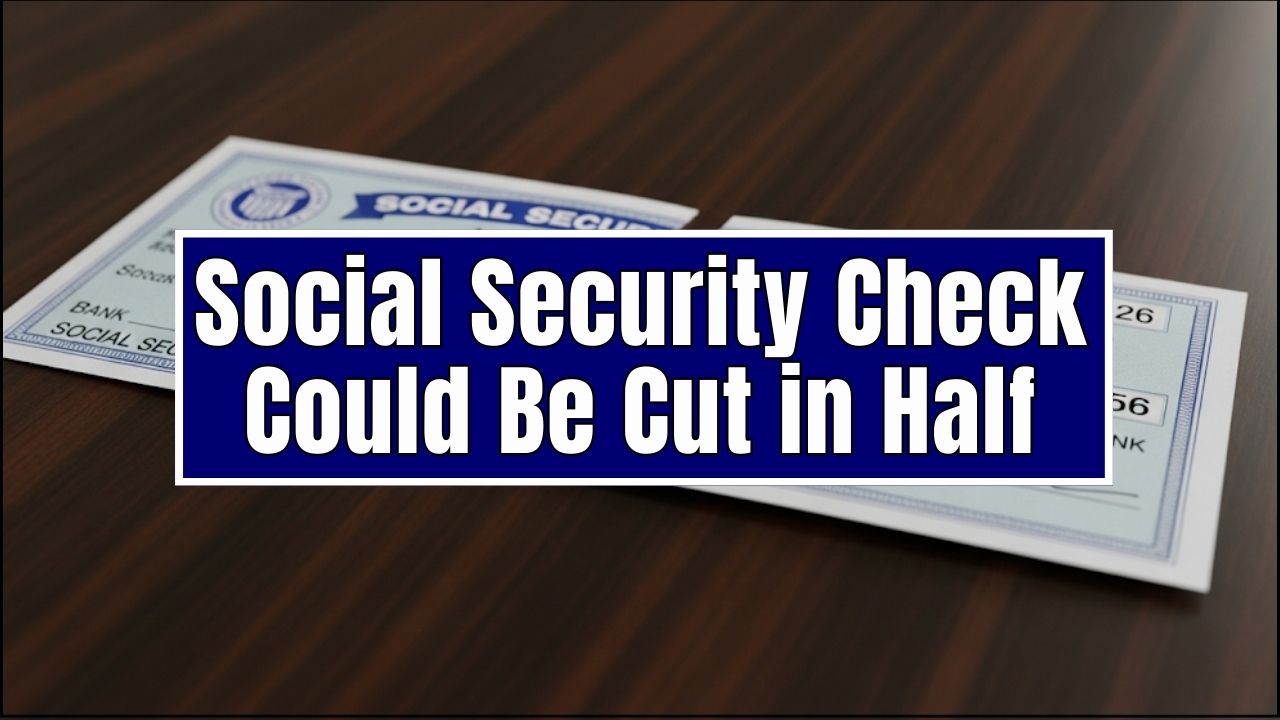If you’re an immigrant in the United States or recently became a U.S. citizen, here’s something that might surprise you: one simple tax error could cost you your American citizenship. Yep, you heard that right.

In recent years, the U.S. government has been cracking down on tax fraud—and in some cases, it’s using tax-related issues to revoke the citizenship of naturalized Americans. That might sound scary, but don’t worry. In this article, I’ll break it all down in plain English, offer expert insights, and give you the know-how to stay safe and informed.
One Tax Error Could Strip You of U.S. Citizenship
| Topic | Summary |
|---|---|
| Risk | Naturalized U.S. citizens can lose citizenship over certain tax errors or fraud |
| Trigger | Filing a false tax return or failing to disclose income during naturalization |
| Law | DOJ uses INA rules and “good moral character” standards to assess eligibility |
| Real Case | Woman in Houston lost citizenship after pleading guilty to tax fraud |
| Statute | INA §3371 allows revocation for material misrepresentations, including tax fraud |
| Legal Precedent | Kawashima v. Holder: Tax fraud over $10,000 is an aggravated felony |
| Official Resource | USCIS Citizenship Resource Center |
Don’t let a tax error cost you your American dream. For immigrants and new citizens, taxes aren’t just about paying Uncle Sam. They’re about proving honesty, responsibility, and character. In the eyes of immigration law, a wrong number on your tax return can mean the difference between staying or being sent home.
So double-check, play it safe, and when in doubt, get help from pros who know the law. Citizenship is a gift. Treat it with the care it deserves.
What’s the Big Deal About Taxes and Citizenship?
When you apply for U.S. citizenship, you’re required to show that you have “good moral character.” That means no serious crimes, no lies on your application, and yes—no tax fraud. If you’ve been dishonest on your tax returns, even by mistake, the government could argue that you weren’t eligible for citizenship in the first place.
“Denaturalization” is the legal term for revoking someone’s U.S. citizenship. While it’s rare, it’s been happening more often, especially in cases where tax fraud is involved.
According to a 2025 report by the Department of Justice, tax-related denaturalization is now considered a “priority enforcement area.” The DOJ looks at cases where people underreported income or filed false returns during the years leading up to their naturalization.
Real-World Example: One Tax Slip, One Big Fallout
Let’s take the case of a woman in Houston. She became a U.S. citizen, then later pled guilty to underreporting just $7,712 in income on her tax return. Although that might sound small, it was enough for the government to argue that she lacked the “good moral character” required for naturalization. Now, she’s facing denaturalization and possible deportation.
And she’s not alone. There are dozens of cases where small tax missteps became a big deal when tied to immigration status.
Why This Matters for Every Immigrant
Whether you have a green card, are applying for naturalization, or already a citizen, here’s the bottom line: you must keep your taxes clean and accurate.
Here’s why:
- IRS and USCIS share information.
- If your tax records don’t match your immigration paperwork, it’s a red flag.
- Even if you’re not criminally charged, civil denaturalization is still on the table.
Common Tax Mistakes That Could Get You in Trouble
Let’s keep it real. Honest mistakes happen. But when those mistakes look intentional, that’s where the trouble starts.
Top tax issues that could hurt your immigration status:
- Underreporting income
- Filing under the wrong status (e.g., claiming head of household when you’re not)
- Improper child or dependent claims
- Failure to file taxes at all
- Amending returns only after an IRS audit starts
Additional Red Flags:
- Large cash deposits with no explanation
- Owning offshore accounts and failing to report them
- Using multiple ITINs or SSNs inconsistently
- Filing taxes late multiple years in a row
How to Protect Yourself: Step-by-Step Guide
Step 1: Always File Your Taxes On Time
Late filings look bad. The IRS and USCIS both want to see consistency.
Step 2: Hire a Qualified Tax Preparer
Don’t cut corners. Use a licensed CPA or enrolled agent who understands immigration-sensitive tax issues.
Step 3: Disclose All Income
Even cash jobs. Side hustle? Uber driving? Etsy sales? Report it all.
Step 4: Correct Past Mistakes
Use IRS Form 1040X to amend previous returns. It’s better to fix it before they find it.
Step 5: Consult an Immigration Attorney
If you have doubts, talk to a professional before submitting your naturalization application.
Step 6: Keep Copies of All Tax Returns and Supporting Documents
Maintain a clean paper trail. USCIS may request your tax history going back 5 years (or more).
Legal Background: What the Law Actually Says
Under the Immigration and Nationality Act (INA §3371), citizenship can be revoked if:
- It was illegally obtained, or
- It was obtained through material misrepresentation (like lying about income).
The Supreme Court case Kawashima v. Holder confirmed that tax fraud causing more than $10,000 in loss is an aggravated felony. That means automatic grounds for deportation and disqualification from naturalization.
And in Maslenjak v. United States, the court ruled that only material lies can lead to denaturalization—but lying about taxes during your naturalization process? That’s definitely material.
Data and Statistics
- According to IRS data, around 16% of U.S. tax returns contain inaccuracies.
- The DOJ reported a 35% increase in denaturalization cases between 2020 and 2024.
- More than 700,000 people become naturalized citizens annually —many unaware of these risks.
FAQs
Can I lose my U.S. citizenship for making a mistake on my taxes?
Yes, if the mistake is serious enough to look like fraud or misrepresentation.
What if I already fixed my old tax returns?
That helps. The government looks at intent. Proactive correction shows good faith.
Is this only for naturalized citizens?
Yes. Only naturalized citizens can be denaturalized. Born citizens are protected.
Does this apply to green card holders too?
Yes, but differently. Tax fraud can block green card renewal or naturalization.
Can hiring a tax pro help me?
Absolutely. A reputable tax preparer can save you from unintentional errors.
How far back can the government look at my tax history?
Typically 5 years for naturalization, but they can go back further if fraud is suspected.
Will I go to jail for a tax mistake?
Only if it’s willful fraud. Most issues are civil—but civil cases can still impact immigration status.








